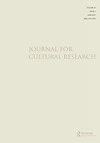“那个下士会说话吗?”: 2019冠状病毒病与巴勒斯坦大学的非殖民化教学
IF 0.6
Q1 CULTURAL STUDIES
引用次数: 4
摘要
摘要:在线教育模式为非殖民化教育创造了一个空间,让学生从课堂教育中解放出来,而课堂教育使学生的被动性永久化。根据弗雷尔关于银行教育、对话和民主的概念,赛义德的各种著作和概念,包括“边缘”和“中心”,以及学生关于在线和课堂教育模式的证词,我们认为在线教育打破了教师对教育过程的霸权。当学生们表达他们从传统课堂的霸权复杂性中解放出来的倾向时,导师们也强调了对话、研究和丰富讨论的重要性,这些都颠覆了师生等级制度。虽然一些讲师过去在课堂上关注研究和对话,但他们在介绍与性、政治和宗教有关的话题时遇到了挑战。然而,这些问题在在线教育中得到了支持,因为教师和学生的重点一直是构建论点,而不是记忆材料。因此,我们被迫采用的在线教育是对范式转变的呼吁,因为传统的教育模式使学生的被动性和对声音的压制永久化,这与以色列定居者殖民主义对巴勒斯坦人声音的压制产生了共鸣。本文章由计算机程序翻译,如有差异,请以英文原文为准。
‘Can the subaltern speak?’: COVID-19 and decolonial pedagogy in Palestinian universities
ABSTRACT The online mode of education has created a space for a decolonial pedagogy that allows student liberation from in-class education which perpetuates students’ passivity. Drawing on Freire’s concepts of banking education, dialogue and democracy, Said’s various works and concepts, including ‘margins’ and ‘centres’, and students’ testimonies concerning online and in-class modes of education, we contend that online education shatters the hegemony of instructors over the process of education. While students air their proclivity for emancipation from the hegemonic intricacy of the traditional classroom, instructors also highlight the importance of dialogue, research and enriching discussions that subvert the teacher-student hierarchy. While some instructors used to follow research and dialogue in class, they encountered challenges in introducing topics related to sexuality, politics and religion. However, these issues have shored up during online education as the emphasis on the part of instructors and students has been on constructing arguments rather than memorising materials. Thus, the online education we have been forced to adopt is a call for a paradigm shift in the sense that the traditional mode of education perpetuates students’ passivity and suppression of their voices in ways that resonate with the suppression of Palestinian voices by the Israeli-settler colonialism.
求助全文
通过发布文献求助,成功后即可免费获取论文全文。
去求助
来源期刊

Journal for Cultural Research
CULTURAL STUDIES-
CiteScore
1.40
自引率
0.00%
发文量
23
期刊介绍:
JouJournal for Cultural Research is an international journal, based in Lancaster University"s Institute for Cultural Research. It is interested in essays concerned with the conjuncture between culture and the many domains and practices in relation to which it is usually defined, including, for example, media, politics, technology, economics, society, art and the sacred. Culture is no longer, if it ever was, singular. It denotes a shifting multiplicity of signifying practices and value systems that provide a potentially infinite resource of academic critique, investigation and ethnographic or market research into cultural difference, cultural autonomy, cultural emancipation and the cultural aspects of power.
 求助内容:
求助内容: 应助结果提醒方式:
应助结果提醒方式:


